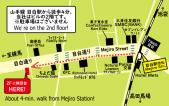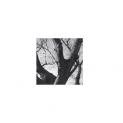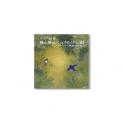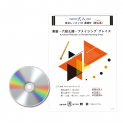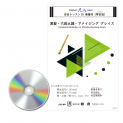Category
- Pre-Owned Bamboo Flutes
- Shinobue Flute
- Shakuhachi Flute
- New Shakuhachi For Sale (1.1-1.7)
- NEW SHAKUHACHI FOR SALE (1.8)
- New Shakuhachi for Sale (1.9 and longer)
- New Jinashi Shakuhachi for Sale
- Shakuhachi Repair
- Shakuhachi Accessories
- Utaguchi Caps for Shakuhachi
- Shakuhachi Cases
- Shakuhachi Bags
- Shakuhachi Bestsellers
- Shakuhachi Books/Scores
- Shakuhachi CD/DVD/Recordings
- Shakuhachi For Beginners
- Japanese Gift Items
- Komuso Items
- Tips from Top Players
- Shakuhachi FAQ
- Coming Soon...
- Coming Soon...
- Flute Making Tools
- Lesson/Workshop Booking
- Gagaku Flute
- Garments/Festival Items
- Japanese Urushi
- Nohkan - Japanese Bamboo Flute
- Outlet Bargain
Business calendar
WHAT'S NEW
-
Nohkan Maker Unknown - Japanese Bamboo Flute PRE-OWNED **Listen**
-
2.4(A) Kinko-Tozan Takusan Japanese Shakuhachi Bamboo Flute
-
2.4(A) Kinko-Tozan Takusan Japanese Shakuhachi Bamboo Flute
Home >> Shakuhachi Flute >> Shakuhachi CD/DVD/Recordings
Shakuhachi CD/DVD/Recordings
Pages
- « first
- ‹ previous
- 1
- 2
- 3
CD Haru no Umi by Hozan Yamamoto
Product #: C0234
Price: ¥1,676 /
1.Haru no Umi(Duet) 2.Haru no Umi (Karaoke for shakuhachi with. Shakuhachi played with small volume) 3.Haru no Umi (Karaoke for shakuhachi) 4.Haru no Umi (Karaoke for koto. Koto played with small volume) 5.Haru no Umi (Karaoke for koto) Western score incl.
CD Bridge of Sound-Dokyoku Performed on Jinashi Shakuhachi- by Takeo Izumi
Product #: C0220
Price: ¥2,619 /
Contents: Koku(Performed on 2.62), Tamuke(Performed on 2.4), San'ya(Performed on 2.9), ,Shi(Performed on 2.22), San'an(Performed on 2.22), Shin no Kyorei(Performed on 2.62), Daha (Performed on 2.22), Rinsen Chosho(Performed on 2.9),
See the youtube interview of the author, Takeo Izumi.
CD Shakuhachi Recital 81 by Katsuya Yokoyama
Product #: C0196
Price: ¥2,750 /
Kon Kai, Daha, Takiochi, Wadatsumi no Irokonomiya, Kangen Hisho, Duo Concertante for Shakuhachi & Koto(Recorded at Carnegie Hall in '85)
CD Shakuhachi Lesson (Tozan)
Product #: C0221-T
Price: ¥2,970 ¥4,055 /
Practice CD set including famous pieces Kurokami, Rokudan no Shirabe and Amazing Grace. CD contains karaoke version and instructor's performances. For Kurokami and Rokudan, both Kinko and Tozan versions are recorded. This set comes with Tozan&Western scores.
CD titles:
1.Kurokami-Kinko
2.Kurokami-Tozan
CD Shakuhachi Lesson (Kinko)
Product #: C0221-K
Price: ¥2,970 ¥4,055 /
Practice CD set including famous pieces Kurokami, Rokudan no Shirabe and Amazing Grace. CD contains karaoke version and instructor's performances. For Kurokami and Rokudan, both Kinko and Tozan versions are recorded. This set comes with Kinko & western scores.
CD titles:
1.Kurokami-Kinko
2.Kurokami-Tozan
3.Kurokami-Karaoke
4.Rokudan no Shirabe-Kinko
5.Rokudan no Shirabe -Tozan
6.Rokudan no Shirabe -Karaoke
7.Amazing Grace-Ensemble
8.Amazing Grace-Karaoke
Pages
- « first
- ‹ previous
- 1
- 2
- 3
© 2026 Mejiro Co., Ltd. All Rights Reserved






